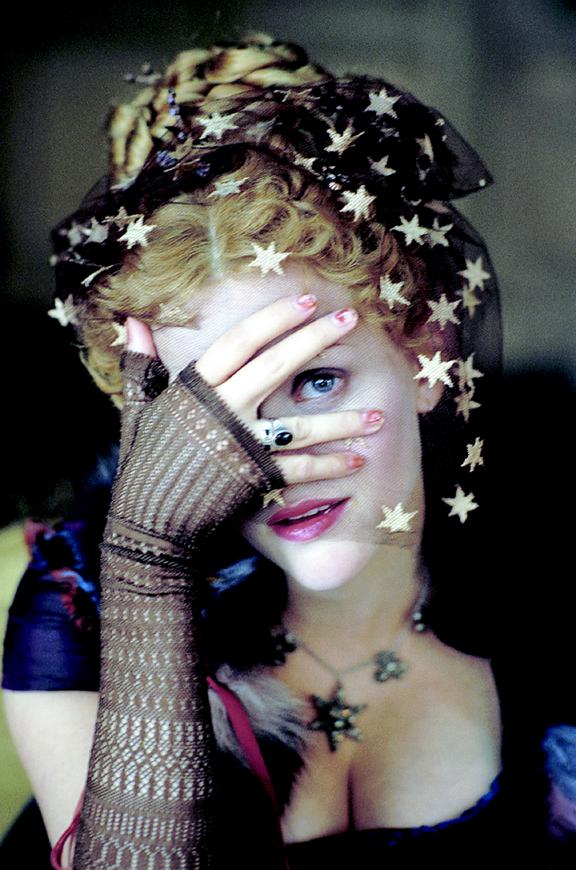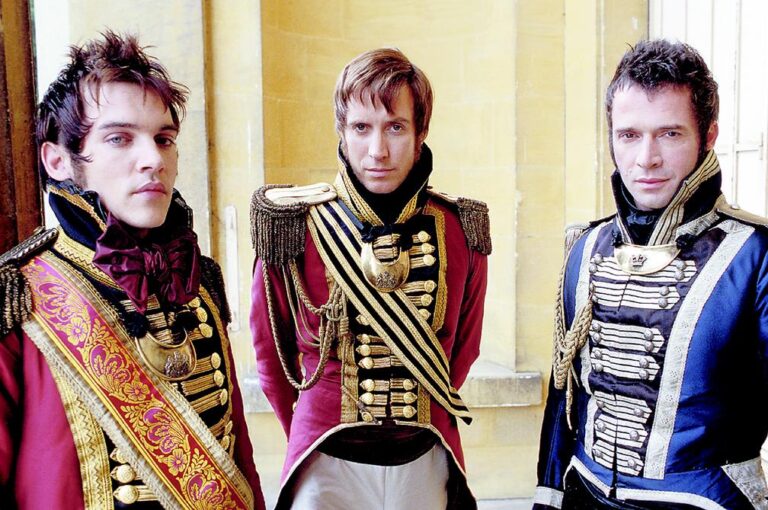Indian-born director Mira Nair (Mississippi Masala, Kama Sutra: A Tale of Love, Monsoon Wedding) is handed a script, a gigantic wardrobe closet, an assortment of British actors (Gabriel Byrne, Bob Hoskins, Rhys Ifans, Jim Broadbent, Geraldine McEwan) and a popular American actress with a good voice coach (Reese Witherspoon) and told to go for the gold.
Witherspoon stars as Rebecca Sharp, a dirt-poor but determined young lass whose sole aim is to marry into the upper-crust society of Regency Period England. With the help of pal/rich merchant's daughter Amelia Sedley (Dirty Dancing: Havana Nights' Romola Garai), Becky gets a job working for an English lord (Bob Hoskins), who turns out to be entitled but impoverished. Nonetheless, Becky romances the lord's hunky son Rawdon (James Purefoy), a soldier in the ongoing Napoleonic Wars. Amelia is busy chasing Rawdon's fellow soldier, George Osborne (Jonathan Rhys-Meyers), so things all work out nicely. Except, of course, that they don't.
Vanity Fair spans a good three decades, and there are numerous characters, subplots, romances, betrayals, misfortunes and wars to get through. Previously, Thackeray's epic romance had been adapted into several TV mini-series. A feature-length film (even one that clocks in at nearly two-and-a-half hours) would not seem like the ideal medium. It isn't exactly. The script skips through the decades at a rather cavalier pace. One minute you're in England, the next you're in Belgium and it's 15 years later. (Curiously, nobody in the entire film looks like they've aged a day.) Obviously, a great deal of character development must be sacrificed in order to keep up this truncated timeline.
Reese Witherspoon is not an actress I've been particularly enamored of. Her roles (Legally Blonde, Sweet Home Alabama, Legally Blonde 2) haven't been the most expressive, and she's always struck me as a little colorless. Vanity Fair is probably her best work, but it's not without its flaws. Rebecca Sharp seems like an important literary creation. (Thackeray subtitled his work “A Novel Without a Hero” in deference to his female lead and to the book's ignoble ensemble of characters). On screen, however, Becky comes across as wishy-washy and ill-defined. Is she a determined romantic? A shameless social climber? It's hard to tell. As a result, it's a little difficult to care what becomes of her or the rest of her toffee-nosed entourage.
Ultimately, though, it's not the cast of characters that takes center stage here. It's Nair's lush direction that will drive most of the ticket sales. Nair is enormously enamored with the pomp and circumstance of early 1800s England. (Her take on colonialized India seems strangely romantic as well.) Costume dramas are, very often, made or broken by their elaborately staged “fancy dress ball” scenes, and this film has them in spades. Perhaps Vanity Fair is little more than a chance to play dress-up in a series of stunningly beautiful doll houses. Even if that is the case, Vanity Fair seems like a shoo-in for Best Costume Design, Best Art Direction and Best Cinematography come Oscar time.
While Vanity Fair has a bit of trouble keeping up with its source material's epic scope and expansive cast of characters, the finished film is undeniably beautiful to behold. The sets and costumes are stunning, the cast is solid, the dialogue retains as much of Thackeray's dry wit as possible, and there are a few moments of swooning romance scattered throughout. Those born and bred on Jane Austen will probably get their money's worth. Those bored by the very prospect will probably be next door watching Alien vs. Predator.




